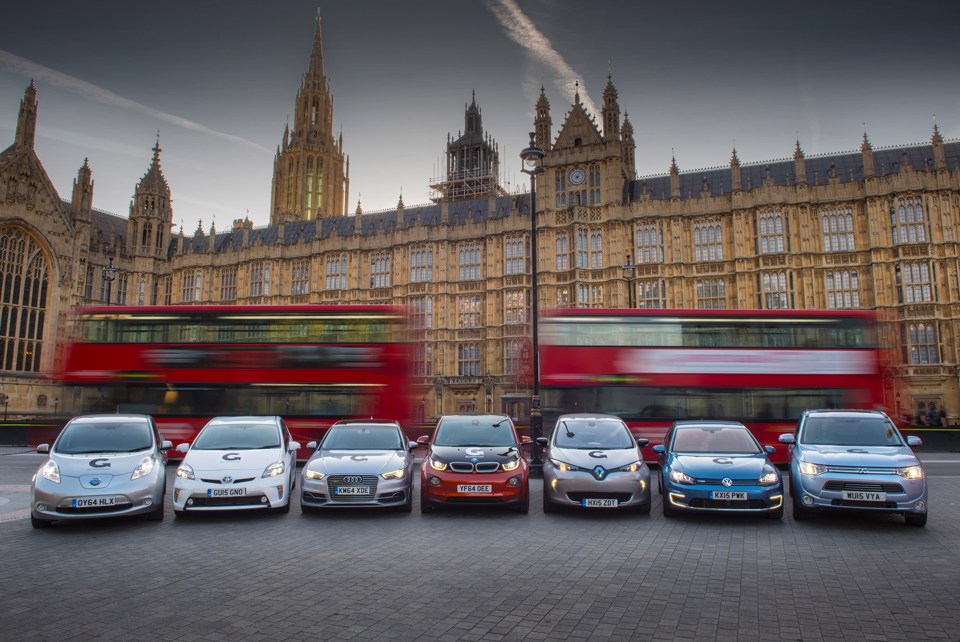Latest new car registration data shows a growing demand for plug-in cars, with plug-in hybrid models showing the biggest growth.
Data from the Society of Motor Manufacturers and Traders (SMMT) reveals that 20,992 motorists made the leap to plug-in power between January and September this year, a rise of 138.5% against 2014.
Fuelling the demand is a greater choice of models, with more than 27 pure electric or plug-in hybrid cars now available in the UK, says Go Ultra Low.
The new data also shows consumer appetite rising for plug-in hybrid models with demand accelerating ahead 226.5% against 2014 with 14,041 registrations.
Head of Go Ultra Low Poppy Welch said, “The growth in plug-in car registrations is excellent news and in line with our expectations. This trend should continue over the course of this year as we know that motorists are keen to achieve maximum miles for the lowest cost, while minimising emissions and environmental impact.”
In line with a trend seen throughout this year, registrations of ultra-low emission vehicles continue to grow their share of the new car market, taking more than 1% share for the year so far, up on the same period in 2014 when just 0.44% of registrations were plug-ins.
The newest statistics reveal that Mitsubishi leads the new registrations charge, with 9,303 of its Outlander PHEV sold since the start of 2015.
Nissan follows with its all-electric LEAF racking-up 4,285 registrations, and BMW’s i3 is the nation’s third most popular ultra-low emission vehicle, also nearly doubling its tally with 1,564 registrations.
UK top ranked ultra low emission cars for year-to-date 2015
|
Rank |
Ultra low emission vehicle |
2015 year-to-date registrations |
2014 year-to-date registrations |
|
1 |
Mitsubishi Outlander PHEV |
9,303 |
2,731 |
|
2 |
Nissan LEAF |
4,285 |
2,969 |
|
3 |
BMW i3 |
1,564 |
874 |
"We've seen enquiries for electric cars go through the roof in recent weeks," said Flexed.co.uk 's Mark Hall, "Petrol and diesel cars just aren't getting a look in."
One factor that's slowing the production of electric cars is a world shortage of cobalt, one of the key components of the high capacity, high performance batteries that have driven the technology, claims car leasing company Flexed.co.uk.
"There's only so much battery production in the world, and a sudden peak in customer orders for electric cars globally means longer lead-in times for orders," said Hall.
Government anticipates that 5% of new car registrations (around 100,000 units) will be ultra-low emission by 2020 – an expectation that appears on track in light of recent rises.
Go Ultra Low exists to help motorists understand the benefits, cost savings and capabilities of the raft of ultra-low emission vehicles on the market.
The collaborative campaign is the first of its kind, bringing together a consortium of seven leading vehicle manufacturers (Audi, BMW, Mitsubishi, Nissan, Renault, Toyota and Volkswagen), Government and the SMMT.




















Rob Chisholm, Applewood Vehicle Finance Limited - 15/10/2015 12:55
Excellent! So ULEV Plug-Ins now account for approximately 0.01% of the new car market. That is going to have to be some rate of growth to hit 5% in the next 5 years. There will be a cap put on any growth in this sector as I suspect that many who opted for these vehicles now, won't be doing so at the end of their replacement cycle. These vehicles may be good for a drivers BiK but for those who are doing anything more than 12,000 miles per annum (that's a decent majority of work need drivers) the fuel bills will be causing the employers a headache. And any of those drivers who travel a half decent private mileage, and therefore pay for that fuel out of their own pocket, will see the savings they have made on their BiK at least partly balanced out by an increase in fuel expenditure, especially if they have moved away from diesel. The technology still has to improve significantly before anyone can justifiably blow this particular trumpet.